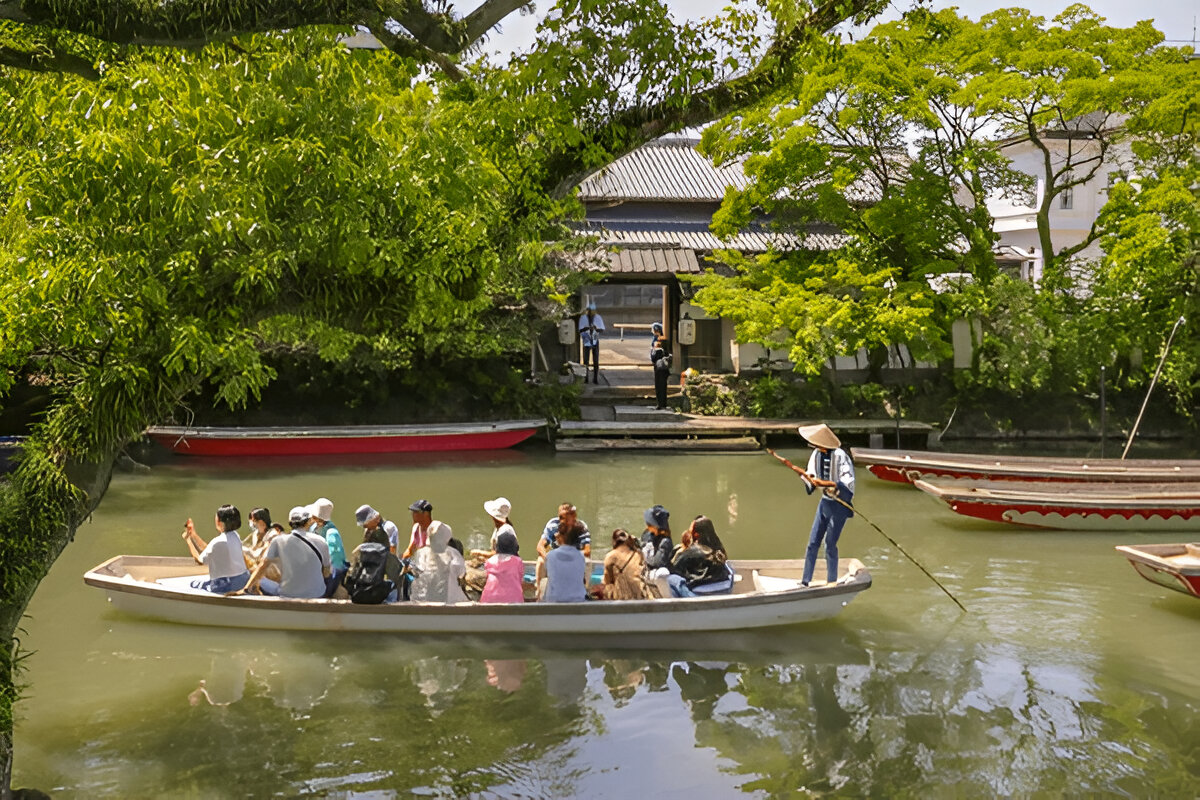
The Traveller’s Dilemma: Loving the World Without Harming It
We travel to connect, to discover, to feel the pulse of a world different from our own. We chase sunsets over ancient ruins, taste spices in bustling markets, and stand in awe of nature’s grandeur. But with every passport stamp comes a responsibility. The very act of exploring our beautiful planet can, paradoxically, contribute to its degradation. This is the traveller’s dilemma, a growing concern that has given rise to a powerful movement: sustainable travel.
But what does “sustainable travel” truly mean? It’s more than just carrying a reusable water bottle or offsetting your flight’s carbon emissions (though those are great starts). It’s a holistic approach, a conscious mindset that seeks to leave a place better, or at least the same, as you found it. It’s about ensuring that our adventures today don’t compromise the ability of future generations—and local communities—to enjoy these wonders tomorrow.
Understanding Your Footprint: The ‘Why’ Behind Sustainable Travel

To become a responsible traveller, we first need to understand our impact. Every choice we make, from the destination we pick to the souvenirs we buy, creates a ripple effect. One of the most effective ways to immediately reduce your footprint is by packing light and mastering the art of One Month, One Bag: The Ultimate Guide to Mastering Carry-On-Only Travel
1. The Environmental Impact
This is often the most visible aspect. Aviation alone accounts for a significant portion of global carbon emissions. Once at our destination, our demand for pristine pools, air-conditioned rooms, and imported foods can strain local water and energy resources, especially in developing nations. The proliferation of single-use plastics in tourism—from tiny shampoo bottles to disposable cutlery—clogs landfills and pollutes oceans, harming fragile ecosystems and wildlife.
2. The Socio-Cultural Impact
Over-tourism is a term we hear frequently, describing destinations like Venice or Barcelona where the sheer volume of visitors degrades the quality of life for residents. It can lead to the commodification of culture, where sacred rituals and traditions are turned into sterile performances for tourists. Disrespect for local customs, inappropriate dress, and intrusive photography can create friction and resentment, eroding the very cultural fabric we travel to experience.
3. The Economic Impact
Where does your money actually go? In many popular destinations, a phenomenon known as “economic leakage” is rampant. When you stay at a foreign-owned all-inclusive resort, eat at international chain restaurants, and book tours through multinational corporations, a large percentage of your spending “leaks” out of the local economy. This means the community that hosts you sees very little of the financial benefit from your visit, perpetuating a cycle of dependency rather than fostering local prosperity.
Pillar 1: Conscious Planning – Before You Even Pack Your Bags
The foundation of a sustainable trip is laid long before you leave home. Thoughtful planning can drastically reduce your negative impact and enhance your positive contributions.
Choose Your Destination and Timing Wisely
- Go Off the Beaten Path: Instead of contributing to over-tourism in a major hotspot, consider a lesser-known city or region. You’ll often have a more authentic experience, and your tourist dollars will be more impactful in an area that needs them.
- Travel in the Off-Season: Visiting during the shoulder or off-season helps distribute the tourist load throughout the year. This reduces pressure on infrastructure and local communities, and you’ll benefit from lower prices and fewer crowds.
- Research, Research, Research: Look into a destination’s environmental policies and human rights record. Are there protected natural areas? Are there active community tourism initiatives?
Rethink Your Transportation
- Fly Smarter: If flying is unavoidable, choose direct flights, which are more fuel-efficient than routes with layovers. Fly economy class—business and first-class seats have a larger carbon footprint per person. Pack light, as a heavier plane burns more fuel.
- Embrace Ground Travel: For shorter distances, trains and buses are significantly more eco-friendly than planes. They also offer a chance to see the countryside and experience travel at a slower, more immersive pace.
- Carbon Offsetting: Consider offsetting the carbon emissions from your flight through reputable programs like Gold Standard or Verified Carbon Standard. These programs invest in renewable energy projects or reforestation efforts.
Pack with Purpose
Your suitcase is a powerful tool for sustainability.
- Build a Zero-Waste Kit: This is non-negotiable. Include a reusable water bottle (with a filter if needed), a coffee cup, reusable cutlery, a cloth shopping bag, and a metal or bamboo straw.
- Solid Toiletries: Shampoo bars, conditioner bars, solid toothpaste, and deodorant sticks eliminate the need for plastic bottles and are travel-friendly.
- Reef-Safe Sunscreen: If you plan on swimming in the ocean, choose a mineral-based sunscreen (with zinc oxide or titanium dioxide) that won’t harm coral reefs and marine life.
Book Green Accommodations and Tours
- Stay Local: Opt for locally-owned guesthouses, homestays, or boutique hotels over large international chains. This ensures your money directly supports local families and entrepreneurs.
- Look for Certifications: Seek out accommodations with certifications like Green Key, EarthCheck, or B Corp. These labels indicate a commitment to environmental and social standards.
- Choose Ethical Tour Operators: Find small, local tour companies that hire local guides, respect wildlife, and contribute to community projects. Scrutinise reviews and ask questions about their sustainability practices before booking.
Pillar 2: The Conscious Traveller – Actions During Your Trip
You’ve planned meticulously. Now it’s time to put those principles into practice on the ground.
Support the Local Economy Authentically
- Eat and Drink Local: Skip the familiar chains and dine at family-run restaurants and street food stalls. This is not only a fantastic way to experience the local culture and cuisine but also a direct injection of cash into the community.
- Shop Responsibly: Buy souvenirs directly from artisans and craftspeople at local markets. Avoid mass-produced trinkets. Ask about the story behind the product. Never buy items made from endangered species, hardwoods, or ancient artefacts.
- Pay a Fair Price: While haggling is part of the culture in some places, do it respectfully. Remember that a small amount for you could be a significant sum for the vendor. Don’t bargain aggressively for the sake of it.
Be a Guardian of Nature
- Leave No Trace: This is the golden rule, especially when hiking or visiting natural areas. Pack out everything you pack in, including organic waste like fruit peels. Stick to marked trails to avoid eroding the landscape.
- Conserve Water and Energy: Be mindful of your consumption in your hotel. Take shorter showers, turn off lights and air conditioning when you leave the room, and reuse your towels and linens for multiple days.
- Refuse Single-Use Plastics: Politely say “no, thank you” to plastic bags, straws, and disposable containers. Use your zero-waste kit proudly.
Engage with Culture Respectfully
- Learn a Few Phrases: Learning to say “hello,” “please,” and “thank you” in the local language is a simple gesture of respect that goes a long way.
- Dress Appropriately: Research and adhere to local dress codes, especially when visiting religious sites. Being a respectful guest means adapting to the local culture, not expecting it to adapt to you.
- Ask Before You Photograph: Always ask for permission before taking a photo of someone, especially children. A smile and a gesture are universal. Never pay for a photo, as this can encourage the exploitation of people as tourist props.
Practice Ethical Wildlife Tourism
Animal encounters can be a highlight of travel, but they must be done ethically. A true project will never allow you to ride, hug, bathe, or take a selfie with a wild animal. These activities are stressful for the animals and often involve cruel training methods. Support organisations that focus on observation in the wild from a respectful distance or rehabilitation at legitimate sanctuaries where the animal’s welfare is the absolute priority.
Pillar 3: The Lasting Impact – After You Return Home
Your role as a responsible traveller doesn’t end when you unpack your suitcase.
Share Your Experience Thoughtfully

Use your voice to promote positive change. When you post on social media, don’t just share the perfect selfie. Talk about the local restaurant you loved, the eco-friendly guesthouse you stayed at, or the local guide who gave you incredible insight. Write honest, detailed reviews that highlight sustainable practices. Your recommendation can steer other travellers toward more responsible choices.
Provide Constructive Feedback
If you see an opportunity for improvement—for example, a hotel that could easily reduce its plastic use—provide that feedback privately and politely. Many businesses are open to becoming more sustainable, but may not know where to start.
Continue the Journey
The most profound effect of sustainable travel is how it changes you. Bring the lessons you’ve learned back home. Continue to reduce your consumption, support local businesses in your own community, and advocate for environmental and social causes. Let your travels inspire a more conscious lifestyle every day.
Conclusion: Progress, Not Perfection
Becoming a sustainable traveller is a journey, not a destination. It’s not about being perfect; it’s about being mindful. It’s about making a series of small, conscious choices that, when combined, create a significant positive impact. It’s about shifting our perspective from what a destination can give to us to how we can respectfully engage with it.
By embracing these principles, we can ensure that the world remains a place of wonder and discovery for generations to come. We can transform travel from a simple act of consumption into a powerful act of connection, conservation, and global citizenship. The next time you plan an adventure, remember to look beyond the postcard and travel with purpose. The planet, and its people, will thank you for it.




Leave a Reply